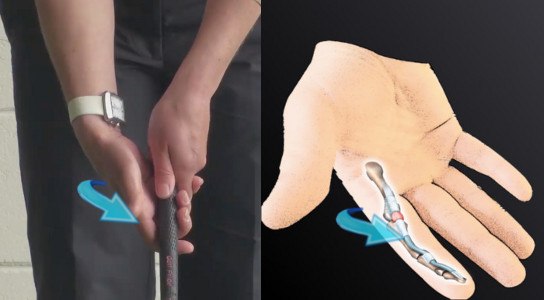
Trigger Finger: Explained
Trigger Finger is a condition that commonly affects golfers. It is a condition where one of the fingers, typically the ring finger or thumb, gets stuck in a bent position and then suddenly pops straight. This can result in pain, clicking or locking of the finger, making it difficult to grip and swing a golf club.
Here are some key points to understand about Trigger Finger:
- Causes: The exact cause of Trigger Finger is not known, but certain factors can increase the risk. These include repetitive gripping or grasping activities, such as swinging a golf club, using improper grip technique, overuse or strain of the finger tendons, and underlying conditions like arthritis.
- Symptoms: The most common symptom of Trigger Finger is a painful clicking or snapping sensation when bending or straightening the affected finger. Other symptoms may include stiffness, a bump or nodule at the base of the finger, and difficulty straightening or bending the finger.
- Diagnosis: If you suspect you have Trigger Finger, it is recommended to consult a healthcare professional, preferably a hand specialist or orthopedic doctor. They will evaluate your symptoms, medical history, and conduct a physical examination to determine the condition.
- Treatment: Treatment options for Trigger Finger can vary depending on the severity of the condition. Non-surgical treatments may include rest, splinting, applying ice or heat, taking anti-inflammatory medications, and performing gentle stretching exercises. In severe cases, a corticosteroid injection or surgery may be recommended to relieve the symptoms.
- Prevention: While Trigger Finger cannot always be prevented, there are measures you can take to reduce your risk. Maintaining proper grip technique, using clubs that are suited to your hand size and swing, and avoiding overuse or repetitive grip activities can help minimize the strain on your fingers.
If you are experiencing any symptoms of Trigger Finger, it is important not to ignore them, as early diagnosis and treatment can lead to better outcomes and prevent further complications. Be sure to consult a healthcare professional for a proper evaluation and personalized treatment plan.
Remember, taking care of your hand and finger health is crucial for golfers as they play an essential role in your grip, swing, and overall performance on the course.
So, pay attention to any signs of discomfort and practice proper hand and finger care to keep your golf game on par!





